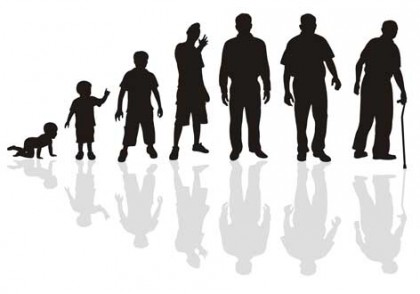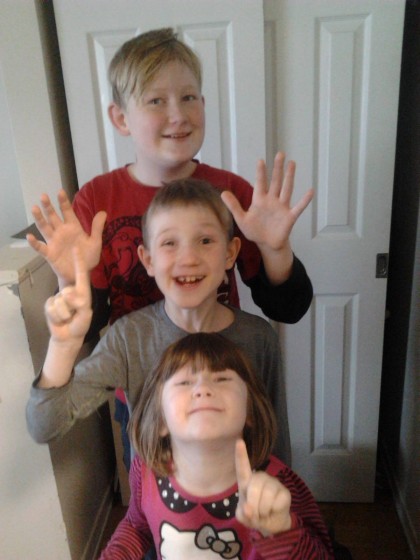A Cat-shaped Carrot
Kate Whittaker Cousino | Mar 9, 2017
Yesterday was my oldest son's birthday, and it got me musing about the nature of time and the self, and how there is a continuity to the self from conception through into death (and, we Christians believe, into eternity). 
I look at my son, and because I have known him so well for so long, to my mind's eye it sometimes seems like I can almost see him telescoped back in time, not like a series of still images superimposed upon one another, but as a smooth progression, as a continuous whole.
There's a funny bit of description in one of Terry Pratchett's Discworld books, from the point of view of a recently deceased character:
"The living often don’t appreciate how complicated the world looks when you are dead, because while death frees the mind from the straitjacket of three dimensions it also cuts it away from Time, which is only another dimension. So while the cat that rubbed up against his invisible legs was undoubtedly the same cat that he had seen a few minutes before, it was also quite clearly a tiny kitten and a fat, half-blind old moggy and every stage in between. All at once. Since it had started off small it looked like a white, cat-shaped carrot, a description that will have to do until people invent proper four-dimensional adjectives."
So what am I getting at?
I've been talking about characteristics my son has retained over the years, but that's really only a marker pointing to the more important truth about the person, which is that we are ourselves, continuously, regardless of development, acquired knowledge or wisdom, sins or virtues, environment or experience, shame or joy, brokenness or wholeness, independence or interdependence. Even as we change and grow, we remain on an essential level, ourselves. We are a single person, in time as well as space, not a multiplicity of persons.
We know that this is true, of course, but we frequently talk and act as though it is not. We procrastinate as though it isn't ourselves who will have to pick up the pieces, and shift blame on our past selves as though we can leave behind our old sins without making amends, simply by outliving them. We are often ashamed or embarrassed by the people we used to be, or angry with our younger selves for mistakes made without the benefit of our present experience and wisdom...and then we make new mistakes because we fail to learn the lesson of humility that would remind us that we have more to live and learn yet.
Sometimes we hide ourselves and the changes, doubts, and movement of soul within us from our loved ones for fear that they will say, "He is not the person I loved"—until the illusion crumbles and we are revealed.
Sometimes, we are the one who feels betrayed to find that a loved one is different than we had assumed. We say things like, "she's not the person I knew" as though a stranger has come and usurped our friend or spouse or child's place under cover of darkness.
We speak this way because it describes an experience, the feeling we have about the way people change and the shock that can come with finding someone changed. Sometimes we talk about past self as another person because we want to mark an epochal change or commitment, metaphorically divide ourselves into "the old self" and "the new self" as a way of putting aside childish or unworthy things. There's a place and a purpose for some of this language.
 But it still remains true that from an eternal perspective, we are all something somewhat akin to that cat-shaped carrot. My son is not just the person that my small wrinkled newborn or my clever, funny preschooler became. That baby was Guillame. The child was Guillame. And the young man before me is my son, Guillame; one person, changing and moving but always no more or less than a single, unique, valuable self. He will carry himself through life, everything he has experienced and known shaping him in a long, continuous process.
But it still remains true that from an eternal perspective, we are all something somewhat akin to that cat-shaped carrot. My son is not just the person that my small wrinkled newborn or my clever, funny preschooler became. That baby was Guillame. The child was Guillame. And the young man before me is my son, Guillame; one person, changing and moving but always no more or less than a single, unique, valuable self. He will carry himself through life, everything he has experienced and known shaping him in a long, continuous process.
And while I may not always feel I know him as well as I do now, I suspect I will always be able to look at him and recognise the baby he was, the child of my youth, at one end of the foundation of the person he is.
Image credit: Life Stages by Nazrul Islam Ripon (Own work) [CC BY-SA 4.0 ([url=http://creativecommons.org/licenses/by-sa/4.0]http://creativecommons.org/licenses/by-sa/4.0[/url])], via Wikimedia Commons
Image credit: Gui turns 12 by Author.
